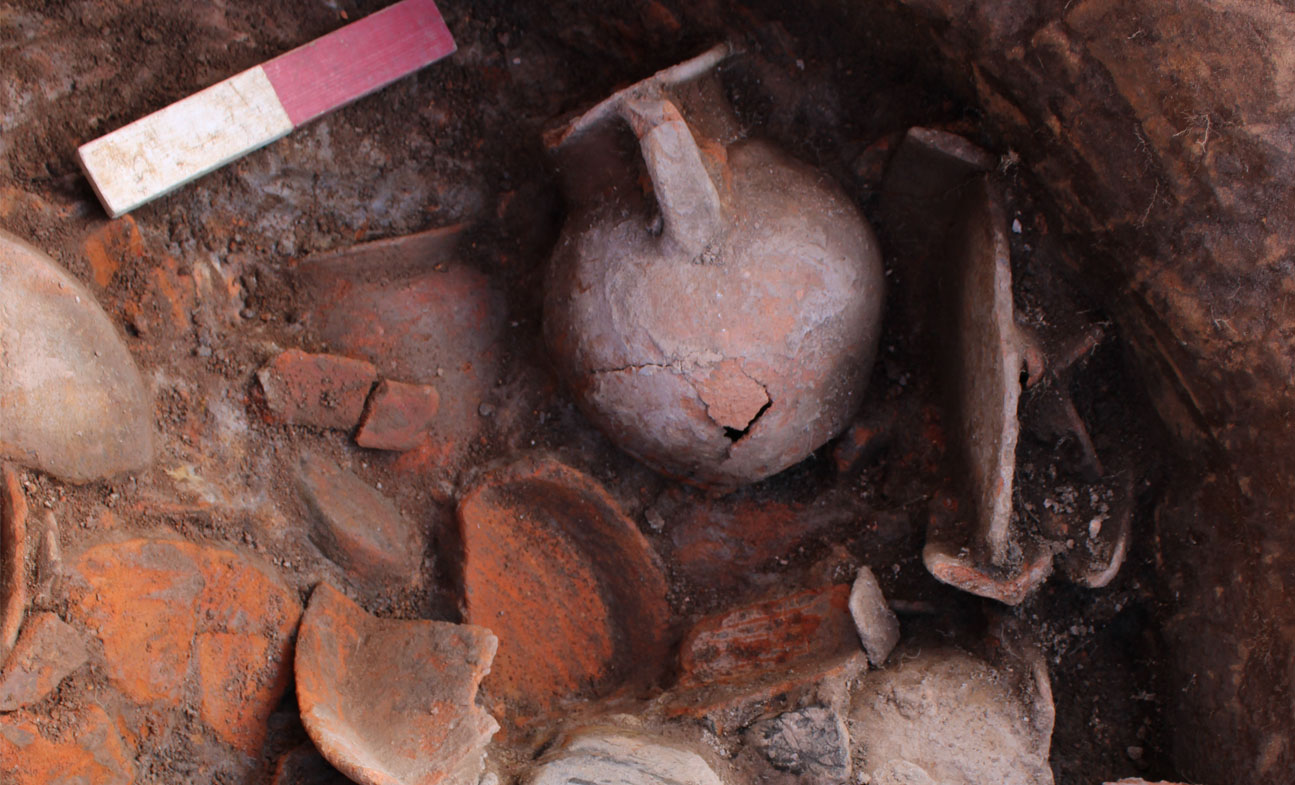BBC Two’s Digging for Britain latest series will feature important archaeological discoveries relating to industrial-scale Roman pottery production at Kier’s ‘The Moors at Arne’ project.
The results of experimental archaeology based on the discoveries from a Roman pottery production site will be revealed at 8pm on 16th January. The compensatory wetlands habitat scheme is being delivered by Kier on behalf of the Environment Agency and its project partners, RSPB and Natural England.
Throughout 2024, more than 17,000 fragments of pottery, two kilns and the remains of buildings, were discovered all relating to the manufacture of a particular type of Roman pottery called Black Burnished ware.
As the name suggests, Black Burnished ware is a dark, charcoal colour. Jars, bowls and dishes were all made on this site and widely traded across the whole of Roman Britain. Several of the pots discovered within the kilns were found in a near complete state but interestingly many are orange rather than black because the necessary chemical reaction in the clay that would have created the darker colour went wrong during the firing process.
The process would have been carried out by skilled potters, but there are still many questions around exactly how they made them. Professor Stuart Prior from Digging for Britain joined experts from Wessex Archaeology and Dorset potter, Bill Crumbleholme at the Ancient Technology Centre in Dorset to build a kiln inspired by those found on site and make Black Burnished ware-like pots to try to answer these questions. This process and the results will feature in the Digging for Britain episode.

"We’re gaining fantastic insight into the inner workings of a Roman pottery production site, operating on a significant scale on The Moors at Arne. From the sheer number and variety of the fragments we’ve uncovered and the kilns themselves we’re able to start understanding the processes and the challenges they might have faced achieving that specific Black Burnished ware finish."
Phil Trim, Fieldwork Supervisor from Wessex Archaeology
"This pottery was incredibly popular with the Roman Army and eventually made its way into everyday use and we are looking forward to exploring this site’s role in supplying Roman Britain. As we know from recent experimental archaeology work with the Digging for Britain team, it is a very technical process that highlights the level of skill and control of fire the potters must have had."
Greg Chuter, Environment Agency Archaeologist
Further research into the pottery, kilns, buildings and the environment will increase understanding of the production of Black Burnished ware in Dorset.

